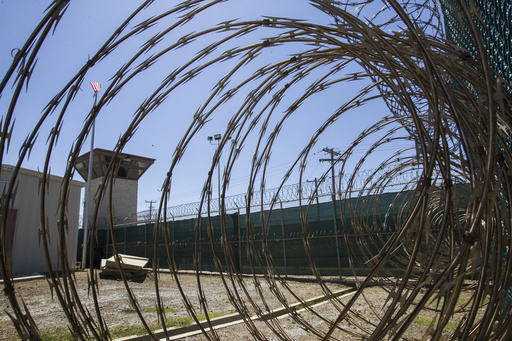
A military judge in Guantanamo Bay, Cuba, has arranged hearings for January regarding Khalid Sheikh Mohammed, the alleged planner of the 9/11 attacks, and two co-defendants. They are set to potentially enter guilty pleas in exchange for life imprisonment, despite efforts from Defense Secretary Lloyd Austin to invalidate the plea agreements.
Judge Matthew McCall, who serves as an Air Force colonel, provisionally organized these plea hearings to occur over a fortnight starting January 6. Mohammed, who is accused of orchestrating the use of commercial airplanes in the attacks, is expected to enter his plea first, provided that Austin’s attempts to obstruct the process do not succeed.
Austin is pushing to dismiss the plea agreements for Mohammed, along with co-defendants Walid bin Attash and Mustafa al-Hawsawi, which would essentially restart the lengthy government prosecution process that could lead to a trial involving the death penalty.
The plea agreements were negotiated over a two-year period under the auspices of the Defense Department and had received necessary approvals from senior officials overseeing the Guantanamo prosecutions this past summer. However, news of the deals sparked widespread condemnation from prominent Republican leaders, including Senators Mitch McConnell and Tom Cotton.
Shortly thereafter, Austin issued a directive to cancel the plea deals, asserting that the significance of the 9/11 attacks necessitated his involvement in any decision regarding the waiver of the death penalty for the defendants.
Defense attorneys have argued that Austin lacks the legal authority to interject himself into this matter, claiming his actions could jeopardize the integrity of the legal processes in Guantanamo.
The U.S. government established a hybrid system of military commissions, combining elements of military and civilian law, to adjudicate cases against individuals detained in the aftermath of the 9/11 attacks and the ensuing “war on terror” declared by the George W. Bush administration.
The assault carried out by al-Qaida remains one of the most catastrophic and lethal attacks on U.S. soil, involving the hijacking of four commercial airliners. Two were flown into the World Trade Center, one struck the Pentagon, and the fourth crashed in Pennsylvania.
Recently, Judge McCall ruled that Austin had no legal basis to overturn the plea agreements, declaring his intervention untimely since it occurred after they had received approval from Guantanamo’s top official, making them legitimate.
Additionally, McCall’s ruling reaffirmed that clauses in the plea agreements for Mohammed and another defendant prevent authorities from pursuing the death penalty again, even if the plea agreements were subsequently annulled for any reason. These clauses appeared to have been preemptively included to avoid the current disputes.
The Defense Department informed the families of 9/11 victims last Friday about its intention to continue opposing the plea agreements. Officials plan to obstruct the defendants from entering their pleas and contest both the agreements and McCall’s ruling in a military commission review court.
As of Wednesday, the Pentagon had not provided immediate responses regarding the status of its potential appeal.
Families of some victims are adamant about wanting the 9/11 prosecutions to go to trial, including the possibility of death sentences for the defendants. However, legal experts express skepticism about whether such trials might actually proceed. Should the cases ultimately navigate the complexities of a trial, the U.S. Court of Appeals for the District of Columbia Circuit would likely address many consequential issues during any potential death penalty appeals.
These issues may encompass the CIA’s destruction of interrogation videos, the legality of Austin’s cancellation of the plea deals, and whether any torture inflicted on the defendants prior to their interrogations compromised the validity of subsequent engagements conducted by FBI “clean teams.”
